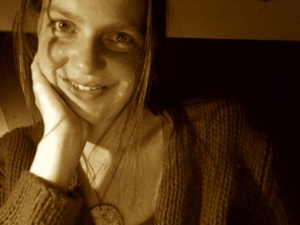Devil’s in the Details
 I find myself with a little extra time lately to notice things I don’t want to notice, like the dust on the bookshelves or that mole that I’m convinced has gotten bigger, hasn’t it? Details are what make life rich, but can also reveal so much about where a person (or character) is emotionally, mentally, and physically. The details that ring most true in writing are the ones we don’t notice at first in real life, the ones that emerge only when we have extra time and space to really look, listen, smell, and touch.
I find myself with a little extra time lately to notice things I don’t want to notice, like the dust on the bookshelves or that mole that I’m convinced has gotten bigger, hasn’t it? Details are what make life rich, but can also reveal so much about where a person (or character) is emotionally, mentally, and physically. The details that ring most true in writing are the ones we don’t notice at first in real life, the ones that emerge only when we have extra time and space to really look, listen, smell, and touch.
Looking back over scenes that fall flat, I notice more than not that the devil’s in the details: I haven’t successfully described a character’s facial expression (what would happen to the corners of her mouth?); I’ve revealed too much of an emotional truth but not enough of what we’d actually see there if we were standing alongside them; or I’ve attempted to set a scene with a few sweeping statements about the landscape, the weather, or the town gone dilapidated, but it’s all too abstract and grand to give a clear sense of the actual place, the concrete details that, when taken together, remind us of places we’ve been and known.
Each of these problems needs a different part of my brain to fix them: if I have underwritten, it is the right brain, that gardener that can sit so present for hours to admire the flowers; if it’s overwritten, it’s the patient, gloved hand of my left brain that will reveal the splendors again by pulling out the weeds. Both are a special kind of work; both are worthy of our admiration; and both are the work we put in as writers to revise a piece to its fruition.
It’s often these details—the ones that have fought their way through, draft-by-draft!—that bring our readers into our world. In fact, it brings the reader into their world, too. The harder we work to find the perfect concrete images for our scenes, the more the real world can shine again, too, in relation.
In times like this, when we’re cooped up in the same places, running like a record through our days, we’re primed to find the details that we might normally miss. Just the ones that make our writing feel true.
ABOUT MEGAN: Megan Rich is the author of two books, a YA novel and a travel memoir. She’s currently revising her third book, a literary-fiction novel inspired by The Great Gatsby. Meg is a graduate of University of Michigan, where she participated in a highly-selective creative writing program, and a recent graduate of the Lighthouse Writers Workshop Book Project Program in Denver, Colorado. She has taught creative writing for twelve years, working with students of all ages and in all genres. Meg pioneered Charlotte Lit’s weekly Pen to Paper writing group and serves as a coach in Charlotte Lit’s Authors Lab program.
STUDY WITH MEGAN: Meg leads the new studio, The Art of Detail for Fiction and Nonfiction Writers, a 4-week immersion that includes asynchronous lessons and course content, and two live Zoom sessions. More information is here.
